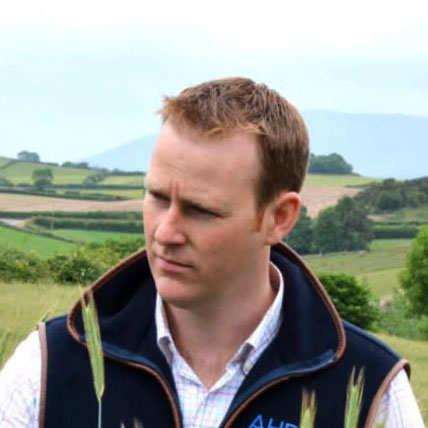Farmer Focus: No substitute for farmers knowing their soil
 © Steffan Hill
© Steffan Hill I only have winter wheat in the ground and have resisted applying any nitrogen as soil temperatures are cold and dry and we had been warned for weeks that a cold snap was coming.
Plus, going on the past couple of years’ experience where I trialled holding off nitrogen to mid-April on some wheat and have seen very little difference.
See also: New winter varieties help to address mustard shortfall
If your crop is thin and backward, you need to feed it, but if it comes through winter and is after something like potatoes then there is little panic in my opinion.
Another benefit of the cold, dry weather is that it has been helpful for keeping pests and disease at bay, with no issues to report.
The cold has arrived so I’m glad the seed potatoes are all still in the shed, too. Queens really don’t like going into cold soil.
We have beans, spring wheat and potatoes to go in, so as soon as the cold clears, we are ready to hit the ground running – as long as it doesn’t rain for a month.
On a positive note, my fertiliser bill has been slashed. Not by the falling prices, but by the soil nutrient health scheme.
My results are filtering through by email and to my amazement I’m an excellent farmer and all my soil is rich in nutrients.
With two-thirds of the fields so far reading above optimum, I’ll never need phosphate, potash or sulphur again.
Strange that, given that I’ve been sampling all the fields regularly and never got results as high.
Also, for a number of years now we only apply phosphate and potash to the potato crop. No cereals crops have been getting soil applied P and K.
In my mind there can only be three reasons: either me or the person with their fancy GPS tracker can’t do the sampling correctly; the agronomy company is rounding down the analysis to get you to buy nutrients; or the soil nutrient scheme is rounding them up to stop you buying fertiliser.
Call me cynical, but something doesn’t add up.
I’m fairly sure I’d be able to walk the fields as a farmer knowing and understanding the soil and the history better than some tech in an office randomly plotting GPS co-ordinates where there may have been a flood, a manure pile or an overlapping headland.
But us farmers wouldn’t be trusted to manage that correctly.
Yet according to YEN, the biggest influence on a crop is the farmer factor and the farmer knowing and understanding his own soil.
I hope everyone has a good planting window to get there spring crops established well.


